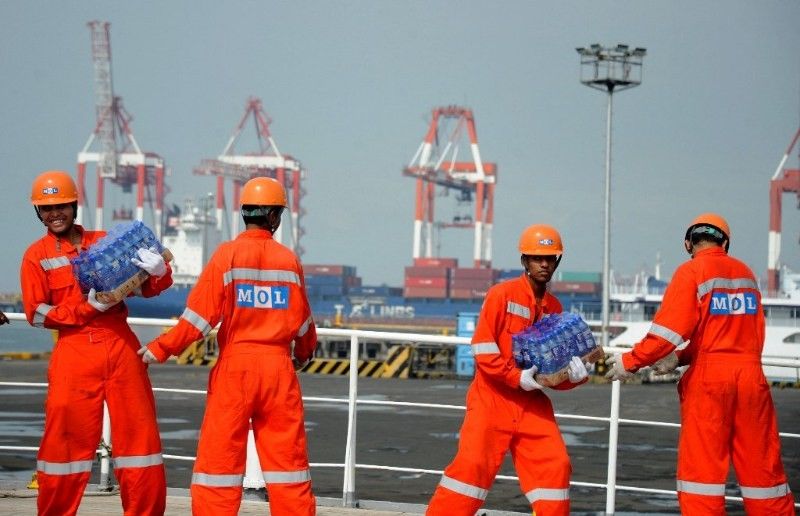European envoys concerned at removal of escrow provision in seafarer welfare bill

MANILA, Philippines — European ambassadors are calling on the Philippine government to provide the necessary legal framework to protect maritime industry employers and seafarers from predatory lawyers, whom industry leaders say could drive away jobs.
“It is essential that our policies evolve with the changing times and adapt to make Filipino seafarers more appealing to the international market,” German Ambassador Anke Reiffenstuel said in a statement.
The bill for the Magna Carta of Seafarers at the House of Representatives includes an escrow provision, which states that the money won by seafarers in a labor dispute would not be released to them in full unless all legal remedies up to the Court of Appeals and Supreme Court are exhausted. Monetary awards in a labor dispute will first be deposited in an escrow or a third party.
Concerns began after senators last week scrapped the provision in its version of the Magna Carta for Seafarers.
“We are a seafaring nation that highly values the contribution of Filipino seafarers on our fleet but I am expressing the concern of our ship owners that a legislative framework without an escrow facility will pave the way for Ambulance Chasing to become endemic,” Ambassador of the Netherlands Marielle Geraedts said.
The escrow provision is meant to protect workers and employers from “ambulance chasing” — when lawyers convince those who get work-related injuries to file cases against their employers and seek high damages, most of which up in lawyer’s pockets.
“Setting up an escrow facility has unprecedented support of the industry,” Geraedts said. “Both employers as well as local and international seafarer unions have expressed their support.”
In 2015, the Philippines passed into law a measure meant to protect seafarers from the practice — including penalties of from P50,000 to P100,000 and at least a year to two years’ behind bars — but industry leaders report that ambulance chasing continues today.
Losing competitiveness
Around 50,000 Filipino masters and officers were cleared last April after the European Commission said it will continue recognizing seafarers certificates issued by the Philippines. The European Union also committed to work with Manila in standardizing education and training for seafarers.
“Following the government’s excellent plan for strengthening the maritime industry, I worry if the necessary legislative adjustments do not follow,” Ambassador of Denmark to the Philippines Franz-Michael Mellbin said.
While organizations and shipping industry leaders welcomed the decision, they also pointed out that the Philippines’ next challenge is to put a stop to ambulance chasing.
The International Maritime Employers’ Council previously said some employers have resorted to hiring other workers even from “less qualified manpower sources” just to steer clear from being a target of the scheme.
Meanwhile, the International Chamber of Shipping said Filipino seafarers used to account for 20% of the global seafaring industry but this number has declined to 14.4% or around 380,000 Filipino seafarers partly due to the abusive scheme. The number may continue to decline if the Philippines does not implement policies that would deter ambulance chasing.
Norwegian Ambassador Christian Halaas Lyster said the country has been hosting Filipino seafarers for education and other opportunities for decades with over 25,000 already working in Norwegian-flag ships, benefitting both countries.
“It is therefore vital that the Philippines provide a legal framework that allows for this partnership to be sustained and continue to grow,” Lyster said.
- Latest
- Trending






























